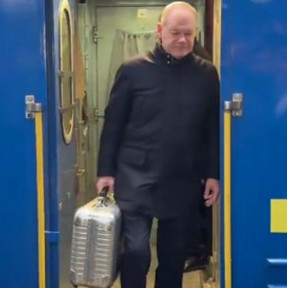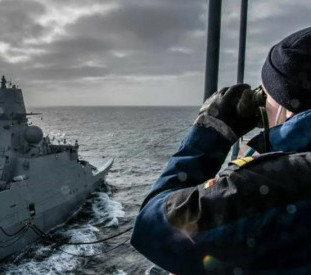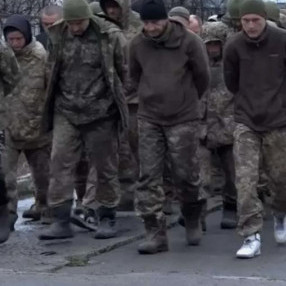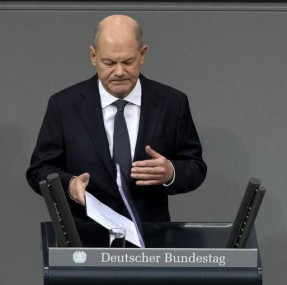This week will mark 100 days since Covid-19 has entered our lives. On December 31, authorities of the People's Republic of China informed the WHO of an outbreak of pneumonia caused by an unknown virus. What is the result of these 100 days?
On April 7, Chinese authorities removed the blockage from Wuhan, where the pandemic started. The same day, Japanese Prime Minister Shinzo Abe announced the introduction of a state of emergency in the main economic centers of Japan. And this reveals only one thing – the pandemic goes on, and its outcome is uncertain.
Results of the 100-day pandemic are as follows: at least 1.5 million infected and about 80 thousand dead, quarantine and economic shutdown in many leading countries of the world. If the situation keeps developing at this rate, the current pandemic's scale may be compared with the Spanish flu pandemic, which claimed the lives of at least 20 million people across the globe in 1919-1920. However, back in those days, humanity enjoyed neither interdependence of national economies current globalization is characteristic of, nor such a scale of urbanization we have now. Many analogies are therefore irrelevant, with economic consequences of the pandemic to be assessed yet, while its political fallout may manifest itself before long.
In opposition to this, modern high-tech and expensive medicine still sets the same things as 100 years ago – "social distancing", hand washing and self-isolation. This is for the healthy, while those diseased should mainly rely on their own body defenses like it was a hundred years ago: prospects of effective vaccines or medications are offered no earlier than in six months or a year.
In short, medicine as a science provides conditional assistance alone so far, but politicians and state leaders fall back on its estimates and forecasts.
Are they ready to make reasonable decisions amidst great panic-provoking uncertainty? Do they demonstrate confidence in the accuracy of their decisions? Do voters trust those? And ultimately, are the leaders guided by electoral motives or national interests? Oddly enough, answers to these questions swiftly become obvious to any layman.
It is my belief that the three-week-long silence of Soviet leader Mikhail Gorbachev after the Chernobyl disaster undermined people's faith in him all the way through, which was perhaps the key factor for his political failure, and, most importantly, the collapse of his policy of reforms – "perestroika".
People are not going to forget US President Donald Trump's light-weight assessments of the coronavirus epidemic threat in January this year, which were replaced by wild calls to use unproven drugs amid a breaking crisis in New York with its over 140 thousand infected people, which is more than anywhere in the world. The situation being what it is, it seems that financial injections into the US economy that exceed the size of the national debt, will hardly help Trump in the United States' presidential race.
British Prime Minister Boris Johnson will be likely forgiven for taking a relaxed approach to the Covid-19 issue. Although having long ignored drastic measures to combat the epidemic, he became a victim of the virus himself. At the same time, German and French leaders Merkel and Macron, demonstrating consistency and determination, enjoy a significant increase in their popularity despite the nightmarish morbidity statistics. However, these countries, despite their democratic traditions, have never turned out a strong government.
Is Japan ready to take effective action under an emergency?
During the Kobe earthquake and the sarin attack in the Tokyo metro, Tomiichi Murayama's office demonstrated sluggishness, if not confusion. There were also many complaints about actions taken by the government of Naoto Kan in the context of the Fukushima-1 NPP technological disaster.
These incidents put an end to the political careers of Murayama and Kang, and also interrupted the short-lived rule of political forces opposed to the Liberal Democratic Party (LDP).
But now the one to face the trials is probably the most successful LDP leader in the 21st century, Prime Minister Shinzo Abe.
The state of emergency declared by Abe is very similar to that of Russia: the shutdown of cities – the so-called lockdown observed in European countries – is not going to take place. Residents will be asked not to leave their homes unless necessary. Most crowded places, including non-food stores, entertainment venues and restaurants, are closed. At the same time, pass control is not being introduced, and there are actually no fines for violating the emergency regime. After a week of downtime, many large industries resume their work.
This is a balanced and cautious approach that should prevent the spread of the virus and simultaneously not too harm the economy given the impending global economic crisis. It seems that none of the world's politicians has decided what to fear more: an epidemiologic disaster or an economic downturn.
However, the peak of the epidemic is yet to be passed. And economic problems are still there to come.








